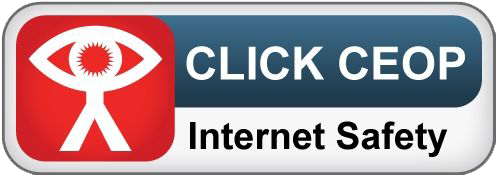The internet is an integral part of children's lives. It opens up so many educational and social opportunities, giving them access to a world of information and experiences.
As you would protect your child in the real world, you will want to make sure that they are safe whatever they are doing. Like learning to cross the road, online safety skills are skills for life. If your child understands the risks and can make sensible and informed choices online, they can get the most from the internet and stay safe whilst doing so – particularly from those people who might seek them out to harm them.
So how can you protect your child online?
Simply put – if you understand the internet and understand what the risks are, there are a number of things you can do that will make your child safer online. Below you will find a list of some websites you can visit to find out more . ..
In school, we have a very clear internet safety policy and each year all students are educated how to stay safe online.
For those parents who are concerned about their children’s safety or the internet, the following sites provide useful advice:
- Parents' Ultimate Guide to TikTok (Commonsense Media) www.commonsensemedia.org/parents-ultimate-guide-to-tiktok
- TikTok app safety – What parents need to know (Internet Matters)www.internetmatters.org/tik-tok-app-safety-what-parents-need-to-know
- www.thinkuknow.co.uk – a site run by CEOP (Child Exploitation and Online Protection centre) with up to date information for children of different ages and parents.
- www.saferinternet.org.uk/parents-guide-to-technology - A guide to answer questions and introduce some of the most popular communication devices, highlighting the safety tools available and empowering parents with the knowledge they need to support their children to use these technologies safely and responsibly.
- www.swgfl.org.uk/safe - provides online safety advice for parents, children and schools
- www.chatdanger.com - offers information related to potential danger using chat related services both on computers and mobile phones
There are a number of information leaflets attached below that will give further guidance
Reporting To School
If you have any problems at School, at Home or with your family or friends in relation to E-safety , please let us know at school. We are here to support you and we will do whatever we can to help and keep students safe.
CEOP
The Child Exploitation and Online Protection (CEOP) Centre is the UK’s national child protection agency (visit www.ceop.police.uk for more information). CEOP believe the start of the new school year is the perfect time to speak to your child about how they use the internet and how they can stay safe online.
Through the ClickCEOP advice and help centre, members of the public can access guidance on a broad range of topics to help protect their children, or alternatively report a concern directly to CEOP.
When should I report to CEOP?
CEOP children stay safe online. Has someone acted inappropriately towards you online, or to a child or young person you know? It may be sexual chat, being asked to do something that makes you feel uncomfortable or someone being insistent on meeting up. You can report it to CEOP below.

